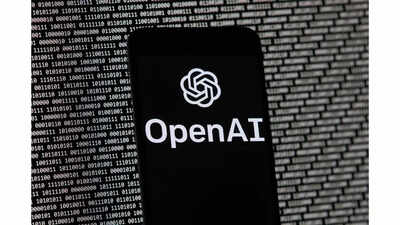ARTICLE AD BOX

OpenAI, the creator of ChatGPT, has completed a major corporate restructuring, converting its core business into a traditional for-profit entity called OpenAI Group PBC, which will remain under the control of its non-profit arm, now dubbed the OpenAI Foundation.
The move, which took nearly a year to negotiate and removes a significant cloud of uncertainty, redefines its relationship with long-time backer Microsoft and clarifies what each party gains and loses.This deal formalizes the long-term, intertwined nature of the Microsoft-OpenAI partnership while granting OpenAI the operational freedom necessary for its rapidly expanding commercial ambitions. It keeps the two companies intertwined until at least 2032.
What Microsoft Gets
* Significant Ownership Stake: Microsoft receives a 27% ownership stake in the new for-profit entity, valued at approximately $135 billion based on the company’s current $500 billion valuation.* Longer Technology Access for Microsoft: The tech giant gains access to OpenAI's technology and models until 2032, including those that achieve Artificial General Intelligence (AGI), a key extension from their previous agreement.
This is considered the most important aspect of the revised pact. Anurag Rana, an analyst at Bloomberg Intelligence, said that Microsoft keeping OpenAI’s intellectual-property rights for both products and models through 2032 “is the most important aspect” of the revised agreement.
“Microsoft is using either OpenAI or Anthropic models in its Copilot products as it develops its own.”* Continued Revenue Sharing: Microsoft remains entitled to receive 20% of OpenAI’s revenue until an independent expert panel verifies that AGI has been achieved. * Massive Cloud Commitment: OpenAI has committed to purchasing an additional $250 billion in Microsoft Azure cloud computing services.
What Microsoft Loses
* Loss of Exclusivity: Microsoft loses its "right of first refusal" on new cloud infrastructure business from OpenAI. While Azure remains the primary partner, OpenAI can now seek out services from other vendors.* Exclusive Right to Consumer Hardware: Access to OpenAI's technology will no longer include consumer hardware.
This provides OpenAI with independence in a new product category.* Revenue Share Post-AGI: Once AGI is verified by the new independent expert panel, Microsoft will no longer receive a cut of OpenAI’s revenue.
What OpenAI Gains
* For-Profit Status and Flexibility: The restructuring clears the path for the company to operate as a more traditional for-profit business, simplifying its corporate structure and removing a constraint on raising capital.* Non-Profit Control and Resources: The OpenAI Foundation retains control over the for-profit company and receives a 26% equity stake (worth roughly $130 billion), which it plans to use for its charitable mission, including accelerating health breakthroughs.* Operational Freedom: OpenAI gains the ability to jointly develop some products with third parties and can utilize other cloud vendors for non-API products (though API products remain exclusive to Azure).* AGI Verification Control: The AGI threshold, which triggers a change in the revenue-sharing agreement, must now be verified by an independent expert panel, a clearer metric than previous terms.
What OpenAI and CEO Sam Altman lose
OpenAI CEO Sam Altman: Altman receives no stake in the newly restructured company.

 1 day ago
8
1 day ago
8








 English (US) ·
English (US) ·